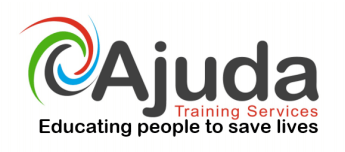This course describes in detail the many facets and procedures of the Mental Capacity Act. This includes who the act affects, when it applies, how to assess capacity and the procedures that can be put in place in the home or workplace to ensure best practices are followed and people are treated fairly at all times. It also introduces the deprivation of liberty safeguards. These safeguards provide a framework for approving the deprivation of liberty for people who lack the capacity to consent to treatment or care in either a hospital or care home setting
Number of modules: 4 Course Duration: 75 Minutes Course Price: £25
Course information

(Note: This is based on the video content shown and is rounded off. It does not account in any way for loading time or thinking time on the questions)
Category: Health & Social Care
Equality, Diversity & Discrimination
Course information
We’ve all heard and used the words ‘equality’ and ‘diversity’ before but what do they actually mean and how do they affect you as an employer or employee? Well if you take the words on their own they are actually quite different, equality is the state of being equal, especially in rights and opportunities. Diversity is the state of being different or varied. However these 2 things should not be seen as opposite to each other, after all people can be different but they still have the same rights. When it comes to places of work there is legislation in place to ensure that we all meet our responsibilities in relation to equality and diversity… And one way to make sure we meet these responsibilities is through training.

Number of modules: 10
Course Duration: 70 Minutes
(Note: This is based on the video content shown and is rounded off. It does not account in any way for loading time or thinking time on the questions)
Course Price: £35
Stroke Awareness
Course information
Strokes are the fourth single leading cause of death in the UK, as well as a leading cause of disability. Being aware of the causes and symptoms will help you act fast in a situation where you suspect someone is having a stroke and provide them with the best chance of receiving the treatment they need and minimising the long term impact of the condition.
This course will cover the types of strokes, the symptoms, and risk factors. It will also cover the treatment options and the longer term impact of the condition.
Target Audience
This course is aimed primarily at people working in adult care as they are likely to be working closely with people that are most at risk of having a stroke.
Advantages
Having a knowledge of the symptoms of stroke can equip you to identify these and act quickly if you are in contact with someone who has a stroke. The quicker medical treatment can be administered to the person suffering a stroke the better the
outcome is likely to be.
Online training is flexible, efficient and cost effective meaning the candidate can progress through the modules at their own pace and in their own time, so they can fit the training in around their work and personal life.
Further Progression
There are a lot of courses in our health and social care suite that would make great follow ups to this course and if you are in the adult social care sector then they would all provide valuable additions to your knowledge.
Specific topics that compliment this directly are Diabetes Awareness, Dementia Awareness and Epilepsy Awareness as these are all conditions that can either increase the risk of having a stroke or develop after someone has had a stroke.

Number of modules: 4
Course Duration: 55 Minutes
(Note: This is based on the video content shown and is rounded off. It does not account in any way for loading time or thinking time on the questions)
Course Price: £25
Sharps Awareness
Course information
There is a common misconception that sharps injuries are only of concern to medical and care staff. However it is not uncommon for people in other industries such as waste disposal to come into contact with used sharps.
In this course we’ll start by looking at some statistics relating to discarded needles, then define ‘sharps’ and look at the different types that can be found in ‘sharps litter’, ranging from needles, syringes and scalpel blades to broken glass, knives, scissors and nails.
It then covers the primary and secondary risks from sharps. It’ll look at the responsibilities of employers and how they must use risk assessment to ensure workers safety, as much as possible.
Then, the course will take a detailed look at Hepatitis B, Hepatitis C, HIV and Tetanus.
There’ll be a section on the Chain of Infection, helping you to understand how an infection gets passed on, and what steps can be taken to break the chain and stop the process.
It’ll look at the probability of picking up an infection from a needlestick injury, and the factors that can affect this.
It’s important to always handle discarded sharps safely so the course will take you through the equipment you need, including litter pickers, forceps, disinfectant sprays and gloves, along with the correct techniques you should employ to avoid injury. This subject will be further expanded on by detailing the correct sharps handling procedures, including how to dispose of discarded sharps safely, how to remove disposable gloves to minimise cross-contamination, and correct hand washing procedures.
Finally, it’ll cover how to report discarded sharps and the correct procedures to follow if you’re unlucky enough to receive a sharps injury.

Number of modules: 6
Course Duration: 55 Minutes
(Note: This is based on the video content shown and is rounded off. It does not account in any way for loading time or thinking time on the questions)
Course Price: £25
Autism Awareness
Course information
Autism is a lifelong developmental disability that affects how a person communicates with and relates to other people around them. According to the National Autistic Society, autism affects about 700,000 people in the United Kingdom, which equates to 1 in 100 of the population and the number of children being diagnosed with the condition is continuing to increase.
This course will provide you with an understanding of what autism is and how it affects a child’s daily life. It will touch on what factors contribute towards a child developing autism as well as some of the typical behaviours associated with it and how you can provide effective support for those with the condition. It also discusses what happens during the diagnosis process, some of the intervention methods that can help manage the condition and suggests some simple adaptations you can
make to improve a child with autism’s day to day life.
Target Audience
People working in adult and child care environments.
Those working in all areas of care may come into contact with people who has Autistic Spectrum Disorders ASD. Although the course focuses on children with autism, having an awareness of the condition and how best to provide support to
someone with ASD will be of use to anyone who interacts with and cares for children and adults as part of their work.
Advantages
Having a knowledge of the typical behaviours and challenges associated with ASD can equip you to identify these and act in a supportive way.
CPD approval means that this course can be used by those that need to prove they are continually developing themselves.
Online training is flexible, efficient and cost effective meaning the candidate can progress through the modules at their own pace and in their own time, so they can fit the training in around their work and personal life.
Further Progression
There are a lot of courses in our health and social care suite that would make great follow ups to this course and if you are responsible for the care of adults or children then a wide range of them would provide valuable additions to your knowledge.
Specific topics that compliment this directly are Introduction to Early Years Foundation Stage, Equality and Diversity and Mental Health Awareness.

Number of modules: 4
Course Duration: 30 Minutes
(Note: This is based on the video content shown and is rounded off. It does not account in any way for loading time or thinking time on the questions)
Course Price: £35
Diabetes Awareness
Course information
Diabetes is a serious lifelong health condition that occurs when the amount of glucose, or sugar, in the blood is too high. If left untreated, high blood glucose levels can cause serious health complications.
Diabetes can develop in anyone at any point in their life although there are certain groups and age ranges where it is more common. There are a range of symptoms that could indicate that someone had Diabetes, these range from excessive thirst to
feeling more tired than usual. It is believed that up to 26% of residential and nursing home residents have Diabetes so being able to recognise the symptoms and knowing how you can help them to manage the condition is essential.
This course is aimed at people working in the health and social care sector and will provide an overview of the condition, the common symptoms that might indicate someone has diabetes, methods of diagnosis, some possible treatments and
common complications that can affect those with the condition.

Number of modules: 3
Course Duration: 45 Minutes
(Note: This is based on the video content shown and is rounded off. It does not account in any way for loading time or thinking time on the questions)
Course Price: £25
Duty of Care
Course information
A duty of care is the requirement that all health and social care professionals, and organisations providing health and care services, must put the interests of service users first.
Working in the health and social care sector involves working with lots of different people with a variety of needs, dependencies, backgrounds and wishes. As a care worker, you have a duty of care towards all the people you are involved with, during your working hours. This means you have to employ a reasonable level of care, to ensure they are kept safe from harm, abuse and injury.
This course will give you an introduction to the concept of duty of care, cover how duty of care affects your work, what to do if you come across a duty of care dilemma and where to go for support or advice along with some practical examples of duty of care situations.

Number of modules: 6
Course Duration: 50 Minutes
(Note: This is based on the video content shown and is rounded off. It does not account in any way for loading time or thinking time on the questions)
Course Price: £25
Basic Fire Safety for Care Homes
This course will provide candidates with a general understanding of basic fire awareness including what should be done in the event of a fire, how to prevent a fire occurring and a basic introduction of the protocol of extinguishing a fire.
It is a cost effective way for employers to fulfil their legal obligation to provide their employees with the necessary understanding of fire awareness.

Number of modules: 5
Course Duration: 60 Minutes
(Note: This is based on the video content shown and is rounded off. It does not account in any way for loading time or thinking time on the questions)
Course Price: £25
Understanding Your Role in Care
Social care is the provision of social work, personal care, protection or social support
services to children or adults in need, or at risk, or adults with needs arising from illness,
disability, old age or poverty.
Choosing a job in health and social care means you want to make a difference to other
people’s lives by supporting and caring for them, so they can thrive and their quality of life is
enhanced.
To work in a professional manner and provide the best quality of care, you need to know the
duties, responsibilities and boundaries of your job.
This course will define social care and talk about why people choose it as a career and what
its goals and objectives are. It will also cover job descriptions, person centred care,
understanding code of practices and the basics of government legislation. Finally it will touch
on dealing with conflicts at work.

Number of modules: 7
Course Duration: 40 Minutes
(Note: This is based on the video content shown and is rounded off. It does not account in any way for loading time or thinking time on the questions)
Course Price: £25
Safe Handling of Medicines
This Introduction to the Safe Handling of Medicines course will start by explaining the key terminology used when handling medicines. It then goes into detail about the roles of the people involved, some of the different groups of medicines, providing different levels of support to patients, infection control, label interpretation and much more.

Number of modules: 7
Course Duration: 60 Minutes
(Note: This is based on the video content shown and is rounded off. It does not account in any way for loading time or thinking time on the questions)
Course Price: £25
Mental Health Awareness
People often equate the words mental health with mental illness and there are many definitions of what mental health actually is. Mental health issues can happen to anyone despite social background, intelligence, gender or other factors.
This course explains the difference between mental health and mental illness. It covers the symptoms of a number of the most common mental illnesses so you will know what to look out for or what to expect if you are working with someone with one of these conditions. As well as providing some practical advice on how you can work effectively with those affected by these conditions.

Number of modules: 3
Course Duration: 25 Minutes
(Note: This is based on the video content shown and is rounded off. It does not account in any way for loading time or thinking time on the questions)
Course Price: £25
End of Life Care
End of life care should be several things, compassionate, cost effective, holistic and effective. There are usually a number of people involved in the care of people at the end of their life and it can be a difficult process to be part of.
This course will provide you with information about what to expect, how to handle some of the emotions associated with this time, and working with the other professionals involved in end of life care.

Number of modules: 5
Course Duration: 25 Minutes
(Note: This is based on the video content shown and is rounded off. It does not account in any way for loading time or thinking time on the questions)
Course Price: £25



